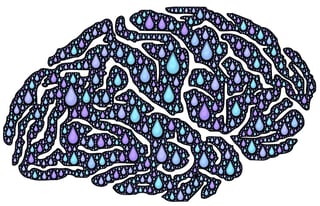Coping with grief, especially over the loss of a beloved person in our lives, is a difficult process for everyone. But for our loved ones who have Alzheimer’s disease, the struggle can be even greater. Because the illness includes symptoms such as memory loss, confusion and difficulty recognizing even close family members and friends, the simple comprehension that a loved one has passed away adds a complex layer to an already unimaginable time for both the Alzheimer’s victim and those closest to them.
 Dealing with loss is a different experience for everyone, regardless of their health condition. But there are some ways you may be able to help your loved one with Alzheimer’s handle her heartache in as healthy a manner as possible. Here are a few tips on helping them cope:
Dealing with loss is a different experience for everyone, regardless of their health condition. But there are some ways you may be able to help your loved one with Alzheimer’s handle her heartache in as healthy a manner as possible. Here are a few tips on helping them cope:
Understand that the grieving process takes time. Many people are familiar with the five stages of grief: denial, bargaining, depression, anger, and ultimately, acceptance. And indeed, many of us have personally dealt with them at one point or another in our lives. But we shouldn’t expect someone with Alzheimer’s to go through these stages in the same ways or on the same timeline as we did. The nature of the illness can cause these emotions to be intensified or altogether absent, so be prepared as best as you can for this process to look completely different from one you have experienced.
Have a plan for communicating the difficult news. Depending on how much the disease has progressed, communication with your loved one may be mildly to severely impacted, and it’s important to try to be sensitive to this fact as much as possible. For example, if your dear one is in the beginning stages of Alzheimer’s and has mostly lucid days, it may be wise to talk to her just as you would if she didn’t have the illness. However, if her condition is advanced, you might want to take a different approach based on your past experiences with conversations between the two of you. This pamphlet from the Alzheimer’s Association offers advice on how to best communicate based on the stage of the illness.
Try to remember that this may not be a one-time conversation. One of Alzheimer’s most troublesome effects is memory loss, and difficulty with short-term memories can take effect even inits earliest stages. And unfortunately, that may mean you’ll have to repeat information regarding a loved one’s passing, as difficult as having that conversation again may be for both you and your friend. Try to be patient with your loved one, and answer her questions as often as she needs you to (although it is up to your discretion as to how detailed you want to be each time).
Whenever possible, let the individual with Alzheimer’s be involved in deciding whether or not to attend funeral services. As this caregiver’s guide points out, going to a funeral or burial service may be helpful in receiving closure or processing the fact that the loss has occurred. However, it also may be a confusing or stressful event, depending on your loved one’s individual circumstances. The decision on whether or not you both will go should be made carefully, and ideally, by both of you.
Coping with grief is an awful time that many of us try to move through as quickly as possible. And while it may not be a quick (and certainly not easy) time for those with Alzheimer’s, there are many things we can do to help our loved ones better understand, and therefore better deal with, losing someone dear to them.
If you are caring for an older adult we know that you will find mmlearn.org an essential learning and guidance tool for all of your caregiver training needs. For more information on senior health and caregiving go to mmLearn.org and look through our large catalog of free online caregiver videos.
Marie Villeza was inspired to start ElderImpact.org after she watched her son teach her father how to play Angry Birds™ on his smartphone. In that moment, she realized the importance of bringing the generations together so they can usher each other into the future, breaking down walls of fear and time. In her free time, she enjoys gardening, hiking, and taking part in her monthly book club.
